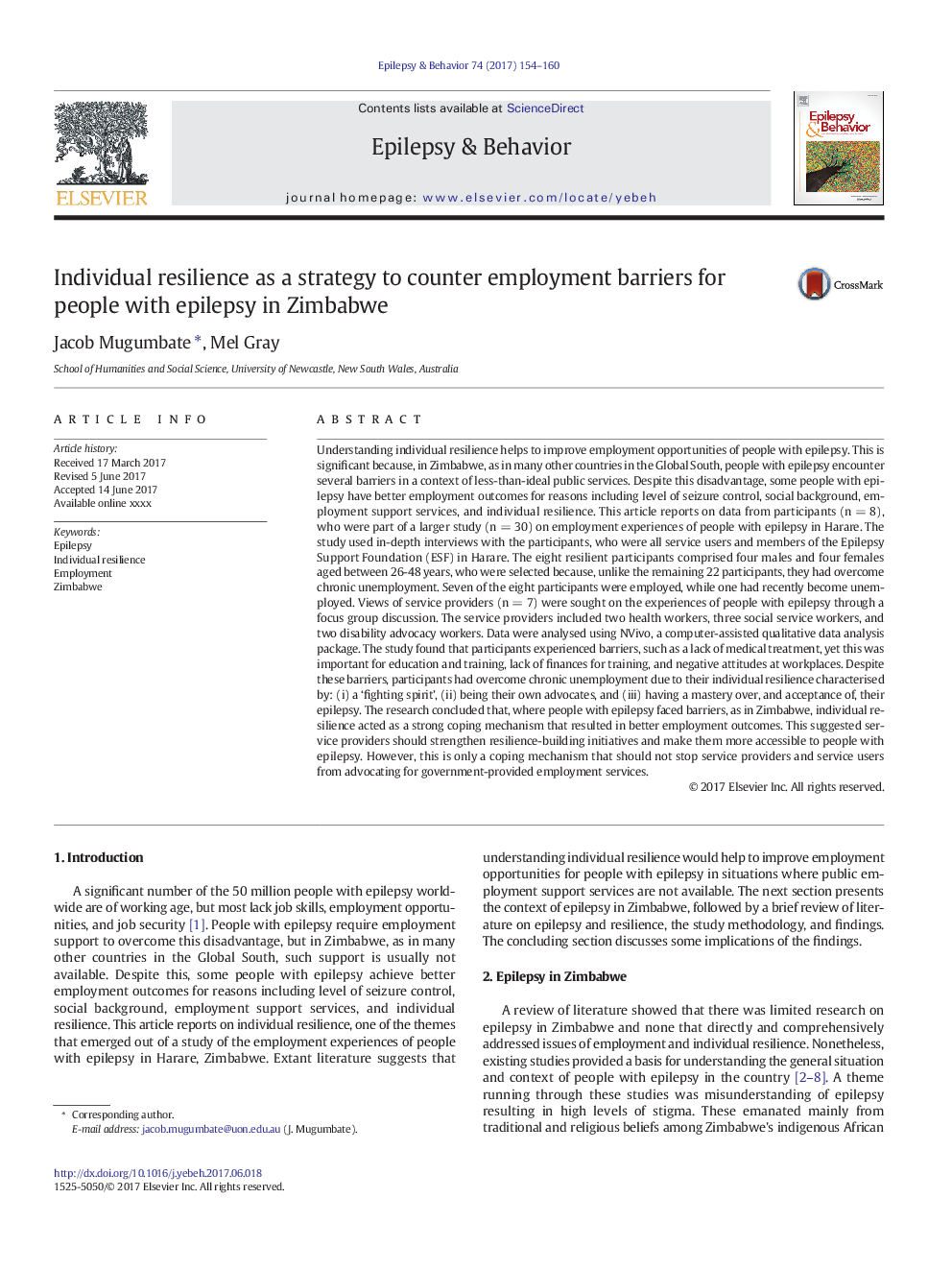Understanding individual resilience helps to improve employment opportunities of people with epilepsy. This is significant because, in Zimbabwe, as in many other countries in the Global South, people with epilepsy encounter several barriers in a context of less-than-ideal public services. Despite this disadvantage, some people with epilepsy have better employment outcomes for reasons including level of seizure control, social background, employment support services, and individual resilience. This article reports on data from participants (n = 8), who were part of a larger study (n = 30) on employment experiences of people with epilepsy in Harare. The study used in-depth interviews with the participants, who were all service users and members of the Epilepsy Support Foundation (ESF) in Harare. The eight resilient participants comprised four males and four females aged between 26-48 years, who were selected because, unlike the remaining 22 participants, they had overcome chronic unemployment. Seven of the eight participants were employed, while one had recently become unemployed. Views of service providers (n = 7) were sought on the experiences of people with epilepsy through a focus group discussion. The service providers included two health workers, three social service workers, and two disability advocacy workers. Data were analysed using NVivo, a computer-assisted qualitative data analysis package. The study found that participants experienced barriers, such as a lack of medical treatment, yet this was important for education and training, lack of finances for training, and negative attitudes at workplaces. Despite these barriers, participants had overcome chronic unemployment due to their individual resilience characterised by: (i) a âfighting spiritâ, (ii) being their own advocates, and (iii) having a mastery over, and acceptance of, their epilepsy. The research concluded that, where people with epilepsy faced barriers, as in Zimbabwe, individual resilience acted as a strong coping mechanism that resulted in better employment outcomes. This suggested service providers should strengthen resilience-building initiatives and make them more accessible to people with epilepsy. However, this is only a coping mechanism that should not stop service providers and service users from advocating for government-provided employment services.


